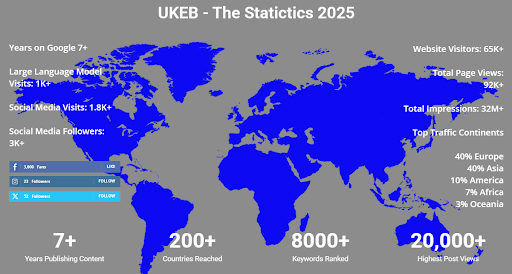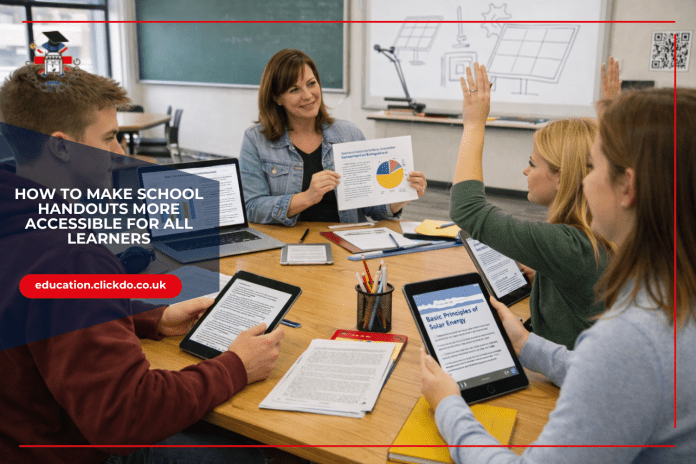Summary
- At the time of writing (9 Feb 2026), there are 1,344 open government jobs advertised across the UK.
- These positions cover nearly 30 professional fields and are available in every major government department.
- For anyone looking to switch careers or enter the Civil Service, the variety of opportunities is enormous, although the system can appear complicated at first glance.
- As technology advances and global priorities shift, some professions are becoming more critical than ever.
- This guide spotlights 10 future-proof UK government careers that offer long-term stability.
The UK government is one of the country’s largest and most diverse employers.
Every year, thousands of roles open up in everything from digital and data to policy, finance, law, and more.
These roles are organised into nearly 30 professions, like Policy, Security, or Communications. Within each profession, you’ll find a wide range of roles available across different government departments and agencies nationwide.
Civil Service roles come with standout benefits:
- a defined benefit pension with up to 30% employer contribution,
- 25–30 days paid holiday plus bank holidays,
- flexible and hybrid working,
- tax-free cycle-to-work schemes,
- bonus and recognition awards,
- retail and gym discounts,
- and guaranteed paid time off for professional development each year.
So, if you’re interested in a career as a Civil Servant, this guide is for you.
In this guide, we cut through the jargon and focus on the 10 most future-proof careers within the UK government (all information provided was correct at the time of publication but may be subject to change).
How We Shortlisted These Careers
- Based on number current open vacancies and recruitment trends
- Relevance for long-term career growth and adaptability
- Breadth of opportunity: roles available in multiple departments and locations nationwide
Also read: Smart Student’s Guide to Choosing a High-Paying Degree
Our Top UK Government Careers To Know
Note: UK government careers are open to people from a wide range of backgrounds.
- If you’re finishing school, you can join the Civil Service through a Fast Track Apprenticeship or a student placement.
- University graduates can apply for the highly competitive Civil Service Fast Stream or direct entry roles.
- Early careers and diversity-focused routes include the Summer Diversity Internship and Early Diversity Internship.
- Experienced professionals can apply directly for advertised jobs at any level.
- Each job advert specifically lists any specific degree, skills, or experience needed.
For each career in this guide, you’ll see details on career levels. from entry roles to senior leadership. In the UK government, you can start your journey in several ways: by applying directly to jobs, joining a two-year Fast Track apprenticeship, enrolling in the graduate Fast Stream, or participating in targeted internships and work experience schemes.
This makes government careers accessible whether you’re just starting out, changing direction, or aiming for leadership.
1. Government Digital and Data Profession

Digital and Data is a specialist career stream in the UK Civil Service, where professionals design, build, and maintain digital public services.
It focuses on using technology and data to make everyday interactions with the government simpler, faster, and more reliable.
What this career entails: Work in technology and data to make people’s everyday interactions with the government simpler, faster, and more reliable.
Who this career suits: People seeking long‑term career growth in technology and data.
Example job roles within this profession:
- Software Developer
- Data Architect
- Product Manager
- Infrastructure Engineer
Indicative annual salary range: £34,000–£45,000 for junior roles; £45,000–£80,000 for mid-level and senior roles; can exceed £100,000 for senior leadership roles
Departments that hire for this profession:
- Department for Work and Pensions/Education
- HMRC
- Home Office
- Ministry of Justice
- Government Digital Service
- NHS bodies and health agencies
Career levels available: Digital and data apprenticeships; graduate and early‑career roles; experienced specialist and senior practitioner roles; leadership and Senior Civil Service positions.
2. Government Security Profession

The Government Security Profession is a specialist career path in the UK Civil Service. Security professionals work across departments to protect sensitive data, public services, and national infrastructure from cyber, physical, and personnel-related threats.
What this career entails: Protecting government systems, information, and people from cyber threats, physical risks, and security breaches that could disrupt public services
Who this career suits: People interested in cyber, risk, intelligence, or behavioural security; professionals from technical, analytical, or policy backgrounds; those motivated by protecting national interests and public trust.
Example job roles within this profession:
- Cyber Security Analyst
- Incident Manager
- Security Architect
- Physical Security Risk Adviser
Indicative annual salary range: £23,000–£32,000 for entry and apprentice roles; £32,000–£45,000 for officer and manager roles; £45,000–£70,000 for senior and specialist roles
Departments that hire for this profession:
- Ministry of Defence
- HMRC
- Department for Work and Pensions/Transport
- HM Prison and Probation Service
- National Cyber Security Centre
- Government Digital Service
Career levels available
Security apprenticeships and early‑career programmes; officer and specialist roles; senior advisers and managers; head‑of‑function and executive leadership roles
3. Policy Profession

The Policy Profession sits at the centre of UK government decision making. Policy professionals develop solutions to national issues and turn political priorities into practical actions that affect everyday life across the UK.
What this career entails: Developing and advising on government policies by analysing evidence, engaging stakeholders, and supporting ministers and Parliament
Who this career suits: People interested in public affairs; professionals from varied academic and personal backgrounds.
Example job roles within this profession:
- Policy/Strategy Adviser
- Policy Analyst
- Planning Policy Adviser
Indicative salary range: £25,000–£35,000 for early and support roles; £40,000–£55,000 for advisory and analyst roles; £60,000–£100,000+ for senior management and leadership roles
Departments that hire for this profession:
- HM Treasury
- Cabinet Office
- Department for Education/Transport/Science, Innovation and Technology
- Regulators and arm’s‑length bodies (like Ofcom, Ofgem)
- Foreign, Commonwealth and Development Office
Career levels available
Student placements and apprenticeships; policy officer and adviser roles; senior policy and management positions; Senior Civil Service leadership roles.
4. Government Economic Service Profession

The Government Economic Service is the main career path for economists in the UK Civil Service. Economists in this field provide the analysis and evidence that help shape major government decisions and long-term policies.
What this career entails: Applying economic indicated for UK-specific plain English: analysing markets, costs, and impacts to support policy decisions and public spending
Who this career suits: People who want to influence major public decisions; those who value evidence, impartiality, and public service; graduates and professionals seeking intellectually demanding work.
Example job roles within this profession:
- Assistant Economist
- Economic Analyst
- Senior Economist
Indicative salary range: £34,000–£40,000 for graduate and assistant roles; £40,000–£65,000 for mid-level and senior economist roles; can exceed £100,000 for senior leadership roles
Departments that hire for this profession:
- HM Treasury
- HMRC
- Home Office
- Office for National Statistics
- Competition and Markets Authority
- Energy and environmental departments
Career levels available
Degree apprenticeships and student placements; assistant and economist grades; senior economist and management roles; senior analytical leadership positions.
5. Government Project Delivery Profession

The Government Project Delivery Profession leads the planning and execution of complex projects that improve public services and national infrastructure. It ensures major government initiatives are delivered on time and within budget.
What this career entails: Managing, coordinating, and delivering large projects and programmes that drive change in public services and infrastructure
Who this career suits: People who are organised, detail‑oriented, and enjoy working in teams; professionals who value career progression and thrive on challenges.
Example job roles within this profession:
- Project Support Officer
- Portfolio Analyst
- Technical Project Manager
- Programme Delivery Lead
Indicative salary range: £25,000–£38,000 for support and junior roles; £44,000–£73,000 for managerial roles; can reach £90,000 or more for senior leadership roles
Departments that hire for this profession:
- Department for Transport
- HMRC
- Ministry of Defence
- HM Treasury
- National Crime Agency
Career levels available: Project apprenticeships and Fast Stream for graduates; junior project support roles; specialisation as analysts or planners; project manager and lead roles; strategic and executive leadership positions
6. Commercial and Procurement Profession

The Commercial and Procurement Profession is the government’s career stream for specialists who manage the buying of goods and services. These professionals make sure public money is spent wisely and contracts deliver what the UK needs.
What this career entails: Negotiating contracts, managing supplier relationships, and overseeing procurement to deliver essential goods and services for government
Who this career suits: Individuals with a commercial mindset; strong negotiators; professionals who enjoy strategy, stakeholder management, and complex problem-solving.
Example job roles within this profession:
- Commercial Practitioner/Manager
- Commercial Contract Manager
- Senior Commercial Advisor
Indicative salary range: £30,000–£37,000 for entry-level roles; £44,000–£58,000 for practitioner and managerial roles; £75,000–£118,000 or more for senior and director-level roles
Departments that hire for this profession:
- Government Commercial Function
- Crown Commercial Service
- Ministry of Defence
- HMRC
- Department for Work and Pensions
Career levels available: Commercial Fast Track apprenticeships; graduate Fast Stream; assistant and practitioner roles; commercial manager and specialist positions; leadership and executive roles
7. Government Finance Function Profession

The Government Finance Function is the professional pathway for people who manage public money across the UK Civil Service. Finance specialists help make sure funding for vital services is used wisely, efficiently, and with full transparency.
What this career entails: Overseeing budgets, financial planning, and risk management to ensure taxpayer money is used effectively across public services.
Who this career suits: People who are analytical and detail-oriented; those interested in financial stewardship seeking a varied and stable career within a supportive community.
Example job roles within this profession:
- Finance Officer/Accountant/Manager
- Assistant Finance Business Partner
- Risk and Audit Manager
Indicative salary range: £28,000–£36,000 for junior and support roles; £42,000–£68,000 for mid-level and senior roles; £81,000–£125,000 for director-level roles
Departments that hire for this profession:
- Ministry of Justice
- HMRC
- Department for Energy Security & Net Zero
- Cabinet Office
- UK Export Finance
Career levels available: Finance apprenticeships and Fast Stream; finance officer and manager roles; lead and senior manager positions; deputy director and director general roles.
8. Government Legal Profession

The Government Legal Profession is the career path for lawyers in the UK Civil Service. These specialists advise on laws, draft legislation, and represent the government in court to ensure decisions are fair, legal, and in the public interest.
What this career entails: Advising on, drafting, and enforcing laws; representing government in court; supporting public policy and justice.
Who this career suits: People with a legal background who want to influence society; individuals open to varied legal specialisms and public service.
Example job roles within this profession:
- Crown Prosecutor
- Commercial/Employment Lawyer
- Legal Officer
- Judicial Assistant
Indicative salary range: £32,000–£50,000 for officer and junior roles; £51,000–£88,000 for qualified and senior lawyer roles; can exceed £86,000 for leadership and specialist roles
Departments that hire for this profession:
- Government Legal Department
- Crown Prosecution Service
- HMRC
- Ministry of Justice
- Ofsted
Career levels available: Legal apprenticeships and trainee schemes; lawyer and senior lawyer roles; management and head of legal positions; executive leadership opportunities.
9. Government Communication Service Profession

The Government Communication Service (GCS) is the professional route for communication specialists in the UK Civil Service. GCS professionals inform the public, explain government policies, and run campaigns that support public understanding and positive change.
What this career entails: Delivering public information, crisis communications, campaigns, and stakeholder engagement across government
Who this career suits: Skilled communicators from any background; people who want to shape public opinion, drive change, and reflect modern society; career changers welcome.
Example job roles within this profession:
- Press Officer
- Senior Media/Social Media/Campaigns Manager
- Content Creator
Indicative annual salary range: £26,000–£40,000 for assistant and officer roles; £40,000–£59,000 for managerial roles; £70,000–£118,000 for senior and head of function roles.
Departments that hire for this profession:
- Cabinet Office
- Home Office
- Ministry of Justice
- Department for Transport/Energy Security & Net Zero
Career levels available: GCS apprenticeships and Fast Stream; entry and officer roles; press officer and campaign manager roles; head of discipline and deputy director positions.
10. Intelligence Analysis Profession

The Intelligence Analysis Profession is a specialist career path in the UK Civil Service. Intelligence analysts gather and interpret information to provide insights that help protect the UK and guide high-level government decisions.
What this career entails: Analysing data and information to produce actionable intelligence for government operations and national security
Who this career suits: Analytical thinkers from any background; effective communicators; individuals motivated by keeping the country safe.
Example job roles within this profession:
- (Senior Field) Intelligence Officer
- Intelligence Analyst
- Group Intelligence Hub Manager
- Language Specialist
Indicative annual salary range: £29,000–£31,000 for entry and officer roles; £32,000–£38,000 for field and support roles; £36,000–£43,000 for managerial roles; up to £63,000 for senior analytical roles.
Departments that hire for this profession:
- HM Prison & Probation Service
- GCHQ
- Independent Monitoring Authority
- Gangmasters and Labour Abuse Authority
- Regulator of Social Housing
- OFGEM
Career levels available: Apprenticeships and early careers; intelligence officer and analyst roles; senior analyst and manager positions; executive leadership roles.
This list is a starting point. If you know of any UK government careers you feel we should add to this list, write to us.














 Without shared goals, your team might be working hard but heading in different directions. Goal setting is not about extra pressure but about reducing uncertainty and creating a sense of progress.
Without shared goals, your team might be working hard but heading in different directions. Goal setting is not about extra pressure but about reducing uncertainty and creating a sense of progress.


























